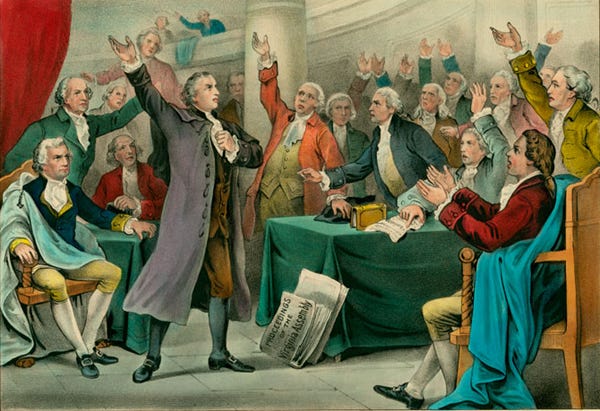The Tradition Of American Federalism
The Constitutional Philosophies of Jefferson, Madison, Stephens, and Calhoun, with Parallels to the Hartford Convention and Southern Secession
The Constitutional Philosophies of Jefferson, Madison, Stephens, and Calhoun, with Parallels to the Hartford Convention and Southern Secession
The Constitutional philosophies of Thomas Jefferson, James Madison, Alexander H. Stephens, and John C. Calhoun form a cohesive and enduring tradition of American federalism, rooted in a strict interpretation of the U.S. Constitution, a commitment to limited federal authority, and a resolute defense of State Sovereignty.
Spanning from the Founding era through the antebellum period, these thinkers envisioned the Union as a compact among Sovereign States, where the federal government serves as a constrained agent exercising only enumerated powers, while States retain residual authority to protect their rights and resist federal overreach.
This shared vision, grounded in decentralized governance, equal protection under the law, and mechanisms for state interposition or nullification, reflects the Framers’ design for a balanced republic. By integrating Jefferson and Madison’s foundational arguments in the Kentucky and Virginia Resolutions, Calhoun’s formalized doctrines of concurrent majority and nullification, Stephens’ applications to territorial governance, and the parallel assertions of the Hartford Convention (1814–1815) and Southern States’ Secession (1860–1861), a unified doctrine emerges, emphasizing Constitutional fidelity as the Republic’s safeguard against centralization.
Primary source quotes illuminate their consistent commitment to a federal government supreme only in its delegated sphere under Article VI, impotent elsewhere, with states as vigilant guardians of liberty.
The Compact Theory of the Union, the cornerstone of this philosophy, posits the…


